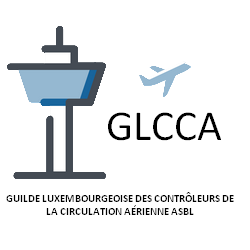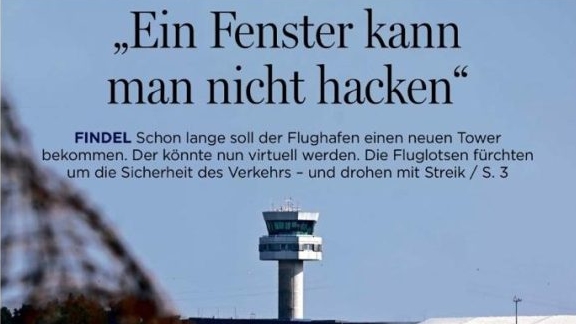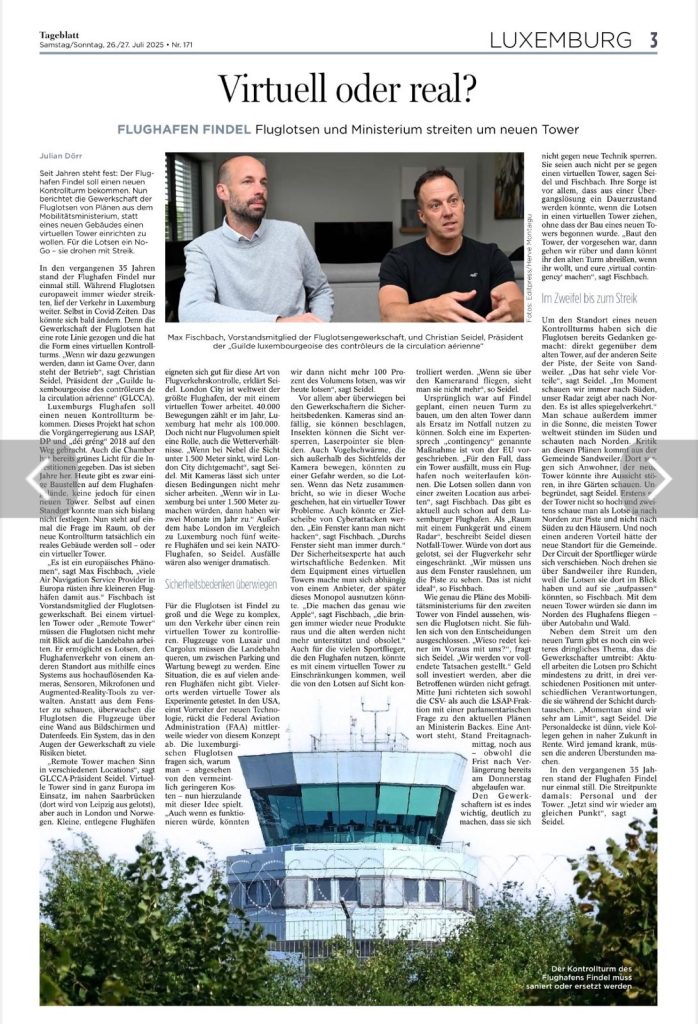As the Guild of Air Traffic Controllers in Luxembourg, we’re not opposed to innovation, and we’re certainly not against virtual tower technology itself. However, its use must be appropriate to the environment.
A remote virtual tower might work for smaller airfields, but not for a busy international airport like Luxembourg, with around 100,000 annual movements, frequent runway crossings, and a 4,000 meter runway.
We believe a virtual tower could have a role, as a contingency solution (only!), but not as a replacement for the physical tower in day-to-day operations. However, having a traditional control tower as a contingency remains the ideal solution, as it guarantees that air traffic can continue at full capacity without the need for reductions.
Dublin and Riga illustrate where a second physical tower is maintained alongside a new one. This retained towers act as a full-capacity fallback, meaning air traffic need not be reduced if the primary fails. Controllers remain within their existing operational environment and use familiar interfaces, they do not require retraining to work in a completely new system, unlike transitioning to a remote or virtual tower setup.
This perfectly aligns with the position we advocate: a traditional tower as a contingency backup ensures seamless operations without retraining or reduced capacity. When financially and logistically feasible, this is clearly the most robust and future-proof solution.
While London City operates with a virtual/remote tower, it cannot meaningfully be compared to Luxembourg Airport. LCY has no VFR traffic, no large cargo aircraft like 747s, no runway crossings, because there’s quite literally nothing to cross, and handles relatively simple operations on a short 1,508 meter runway with around 50,000 movements annually, which is more or less half the traffic Luxembourg handles. Since London City Airport has never had CAT II or III approach capabilities, it was already forced to suspend operations in fog or visibility below 1,500 meters, meaning the switch to a remote tower introduced no new operational limitations!
As Luxembourg considers its future air traffic control infrastructure, it’s important to look at how other major airports approach this issue. Poland’s new mega airport, Centralny Port Komunikacyjny (CPK), offers a strong precedent, despite being a greenfield project with maximum flexibility, CPK is investing in a full-scale, 105 meter-high traditional tower instead of a virtual one. It shows that even the most modern airports see clear advantages in physical, staffed control towers.
Clarifying the Role of Virtual Towers in the Digital European Sky Initiative
Some have claimed that a virtual tower is necessary to meet the goals of the Digital European Sky, but this is misleading. The Digital European Sky initiative is focused on modernizing air traffic management through digital coordination and interoperability, not mandating virtual towers.
👉 Read more here: What is Digital European Sky
Interestingly, over 80% of readers agree with our position, according to a poll by a newspaper
Read more in our recent interview with Tageblatt: 👉 tageblatt.lu article
Safety must come first. Always!!



